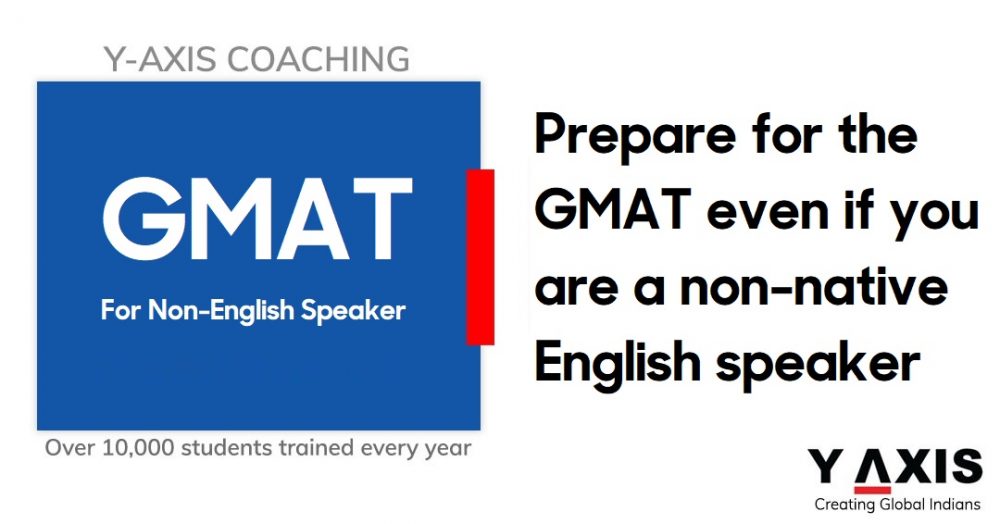
For some non-native English speakers, the GMAT exam may be tough because it is conducted only in the English language. If you are a non-native English speaker, and you English is weak, your performance in the test may suffer.
if your English is weak, everything you do in English will suffer. So, without a certain degree of English fluency, there is just no “fast” route to scoring well on the GMAT. In addition, it is probably your ultimate goal to study at a graduate school in an English-speaking country, most likely the United States. How are you going to excel in your graduate studies if your English is not good enough for the GMAT?! It’s not going to be easy, but if you make certain efforts to improve your English, then things can be easy.
Read, speak and think in English
Every single day, immerse yourself in English. Listen and talk in the language. It’s the only way your English can really improve. Look for a friend you can speak to in English. Watch or listen to programs on television or radio in English.
Try to read articles in foreign publications such as the Economist and the Wall Street Journal.
This will help you excel as a non-native English speaker on the GMAT.
Take an ESL course
If you’re having trouble improving your English, before you even start studying for the GMAT, you could first consider concentrating solely on improving your English. There are several ESL course options both online and offline.
Learn new words
When you see a word that you don’t understand, regardless of where you see it, look it up right away in a dictionary. Use this new term in your speech and writing. Look for instances of how it is used. A much easier way of fully knowing the meaning of a term is to use these new terms in context.
English is important even for quant
Even if you apply to quant- heavy programs (engineering, math, etc.), GMAT ‘s verbal portion is still almost always important for admissions.
You will have to decode complicated sets of instructions, and if your communication abilities are not up to mark, it’s easy to miss a small detail. When reading charts and graphs, this is particularly valid.
In short, even if you apply to engineering or math or other STEM programs, to succeed on the quantum part, you will still need good verbal skills.
Use the second language tag to your advantage
People for whom English is a second language actually have an advantage on the GMAT. Many native English speakers have not thoroughly memorized grammar rules because they learned English by ear, in childhood. Native speakers of a language usually don’t learn that language by studying and practicing grammar rules.
Non-native speakers, by contrast, typically do learn English by rehearsing grammar rules, and thus tend to be very well versed in grammar.
Although it takes solid English skills to take the GMAT as a non-native speaker, if your English is already good, you do not have to study differently from a native speaker. Try to bear in mind the advantages over native speakers. For e.g, on grammar issues, you may know more than a native speaker!
With Y-Axis Coaching, you can take up online coaching for conversational German, GRE, TOEFL, IELTS, GMAT, SAT and PTE. Learn anywhere, anytime!



Prepare for the GMAT even if you are a non-native English speaker
Posted on October 12, 2020